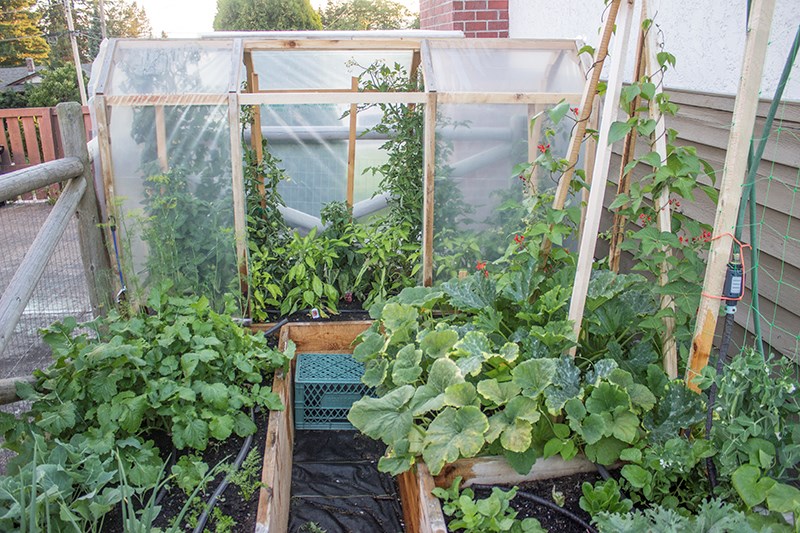City of Powell River council is looking at amending bylaws to regulate urban farms, micro-businesses that have operated in a legal grey zone for years.
Zoning and home-based business bylaw amendments would allow for commercial agricultural production of fruits and vegetables on all one-acre or less parcels of land zoned residential, except in mobile home parks.
“It might shock people to learn that they require a business licence to grow food on their property and sell it,” said city senior planner Jason Gow.
He added that the city is not “busting people for growing food on their property,” but under current regulations, staff is unable to approve business licences for those interested in developing an urban farm on residential properties in much of the city, with the exception of Wildwood.
Without a business licence, it may be more difficult for farming entrepreneurs to obtain required insurance.
The idea for updated bylaws was directed from council last spring.
At the Tuesday, July 19, committee of the whole meeting, Gow presented his urban farming report and told councillors the city broadly supports agricultural production through its sustainable official community plan and integrated community sustainability plan, but its bylaws need to be brought into agreement with those plans.
“The city has broad statements in its overarching plans, however, on the ground, the city’s regulatory framework prohibits many opportunities for local agriculture,” said Gow.
Zoning amendments would allow for the lease of residential land for neighbourhood, small-plot intensive farming, he said.
Council agreed that city planning services needs to look at potential zoning and home-based business changes and directed staff to report back with potential solutions.
Permaculture advocate Ron Berezan is encouraged by the direction the city is taking and said the move will help further legitimize current producers for local farmers’ markets.
“People come here for the lifestyle and try to piece together a living from a patchwork of jobs,” said Berezan. “Strengthening the micro-economy will make it easier for people to get by; there are a lot who operate close to the bone.”
Berezan said gardeners are already selling extra vegetables, either through online social media or more formally at area farmers’ markets. “Anything we can do to encourage urban farming is a good thing,” he said.
Gow said he had not heard of anyone coming to city hall trying to apply for a urban-farming business licence and being turned away, but the move is in line with a growing trend in the region and nationally.
Vancouver and Edmonton recently made changes to allow for urban agriculture, and closer to Powell River, so too have Cumberland, Nanaimo and Victoria.
Berezan said the more people who produce food locally, the greater Powell River’s food security will be.
“With all the monkey business with ferries recently, it’s just a reminder of how vulnerable we are if we don’t have a strong local food system,” said Berezan.
He added that if the region sees an increase in urban farms, it will return to its roots of widespread smaller farms.
“Before the age of ferries and the globalized food system, where food comes in on massive refrigerated trucks, we were close to being food self-sufficient in this community,” said Berezan. “We need move in that direction again.”
While Powell River Food Security Project coordinator Vanessa Sparrow said she supports the idea of the land-use amendments that will increase local produce, she cautioned that food security is more complex than just supply.
“Increasing regional food security for Powell River requires a range of actions, not least of which is increasing equity of access to the food we already produce and import, not just growing more for sale,” said Sparrow. “We need to look at food security in the context of an overall poverty-reduction strategy, which will improve access to fresh and nutritious food for currently disadvantaged groups.”



